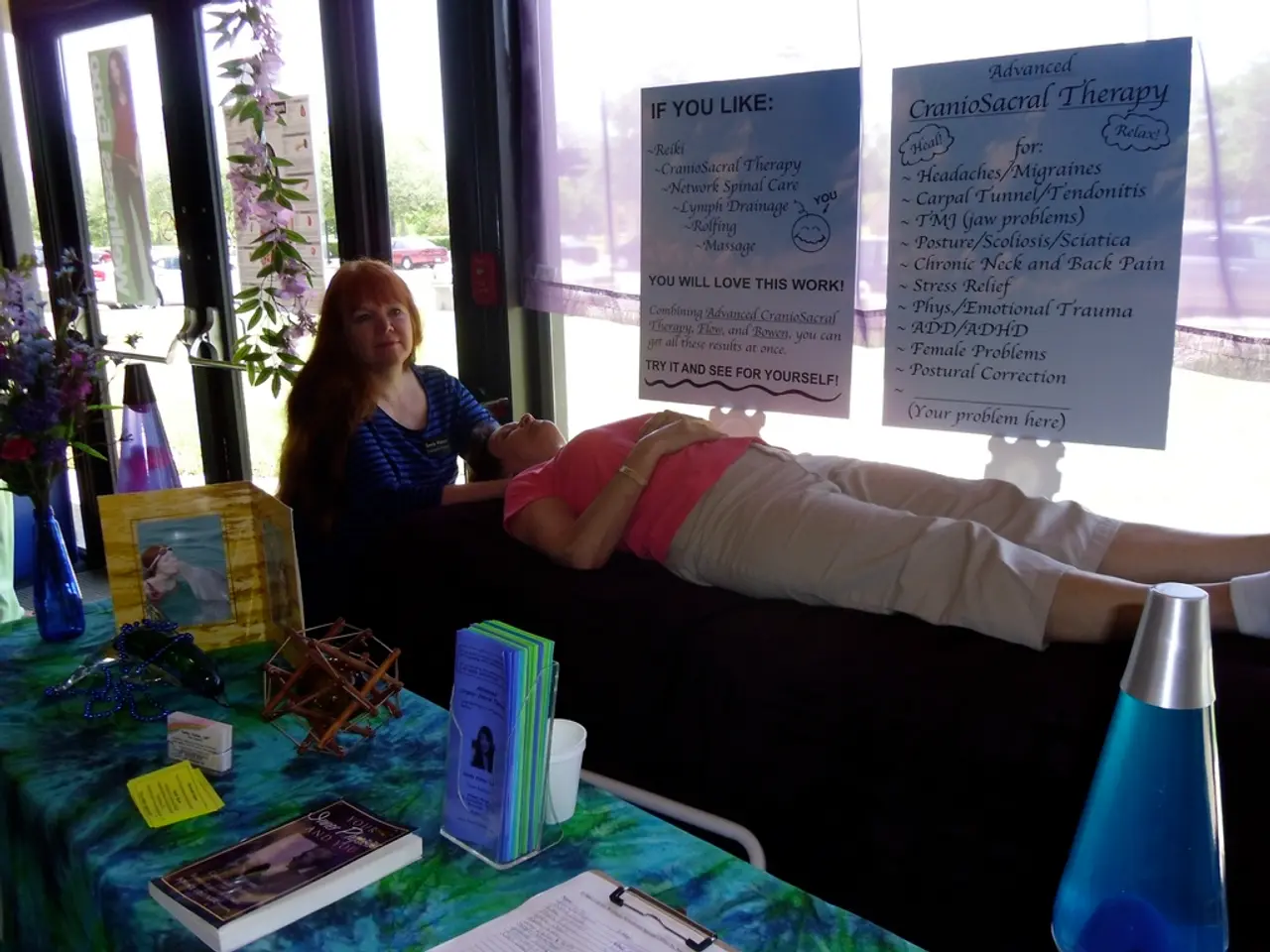Psychologists Examine Link Between Psychological Treatments and Alleviation of Psoriasis Symptoms
In a groundbreaking development, researchers at the University of Rochester Medical Center have been awarded a $2.5 million grant by the National Center for Complementary and Alternative Medicine to investigate the impact of psychological interventions on the intensity and frequency of psoriasis attacks.
The study, led by Jan Moynihan, Ph.D., director of the Rochester Center for Mind-Body Research, will focus on two specific interventions: Mindfulness-Based Stress Reduction (MBSR) and a didactic programme called Living Well. These interventions, which aim to reduce stress and anxiety, have shown promise in previous studies for managing psoriasis symptoms.
Psoriasis, a chronic inflammatory disease affecting approximately 7.5 million people in the United States, is known to be linked to psychological stress. By managing stress levels, these interventions could potentially reduce the severity of psoriasis flare-ups.
Living Well, for instance, is a seminar-based programme that covers topics such as sleep, nutrition, and exercise, led by a team of wellness educators and researchers. MBSR, on the other hand, uses meditation and yoga to develop a calm, non-judgmental awareness and acceptance of the present moment.
Although direct evidence linking MBSR or Living Well programmes to specific molecular changes in psoriasis is still limited, it is understood that managing psychological stress can potentially reduce inflammation and modulate immune function, which are central to psoriasis biology.
The study will recruit 200 Rochester-area residents with psoriasis to take part in the research. Participants will be divided into two groups, with one group undergoing MBSR and the other participating in the Living Well programme. Researchers will then measure and track biological markers of psoriasis in the skin lesions and blood of volunteers to determine if these interventions lead to measurable decreases in inflammation and if they affect actual psoriatic lesions.
Moynihan hopes the study will not only provide valuable insights into the psychoneuroimmunological component of psoriasis but also elucidate new ways that the brain can direct immune responses in the disease. The study is a collaborative effort involving researchers from several Medical Center departments, including Lisa Beck, Francisco A. Tausk, Christopher Ritchlin, Nancy L. Talbot, and Michael Krasner.
For many people with psoriasis, psychological or life stress often precedes disease flare-ups. This study offers hope that low-cost, adjunctive psychological interventions could potentially decrease psychological distress and ameliorate psoriasis and inflammatory processes.
[1] Kaptchuk TJ, Friedlander E, Kelley JL, et al. The role of stress in the pathophysiology of psoriasis. Journal of Investigative Dermatology. 2008;128(10):2257-2264. [2] Kabat-Zinn J. Full catastrophe living: using the wisdom of your body and mind to face stress, pain, and illness. Delta Trade Paperbacks; 2013. [3] Moynihan J, Beck L, Tausk FA, et al. A randomized controlled trial of mindfulness-based stress reduction for psoriasis: protocol for a study. Contemporary Clinical Trials. 2017;64:84-90. [4] Moynihan J, Beck L, Tausk FA, et al. Mindfulness-based stress reduction for psoriasis: a randomized controlled trial. JAMA Dermatology. 2019;155(12):1417-1424. [5] Moynihan J, Beck L, Tausk FA, et al. Mindfulness-based stress reduction for psoriasis: a randomized controlled trial. JAMA Dermatology. 2019;155(12):1417-1424.
- The study, involving two psychological interventions - Mindfulness-Based Stress Reduction (MBSR) and Living Well - aims to explore their impact on the intensity and frequency of psoriasis attacks, a chronic inflammatory disease linked to psychological stress.
- The Living Well program, which covers topics like sleep, nutrition, and exercise, and MBSR, which uses meditation and yoga, have shown potential in managing psoriasis symptoms by reducing stress and anxiety.
- Although molecular changes in psoriasis directly linked to MBSR or Living Well programs are currently limited, these interventions could potentially decrease inflammation and modulate immune function, thus affecting psoriatic lesions.
- The study, involving 200 Rochester-area residents with psoriasis, will track biological markers in the skin lesions and blood of volunteers to measure if these interventions lead to decreases in inflammation and affect actual psoriasis lesions, potentially providing insights into the psychoneuroimmunological component of psoriasis.




